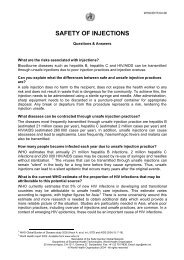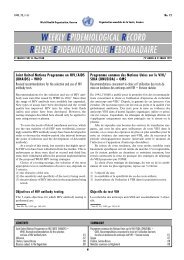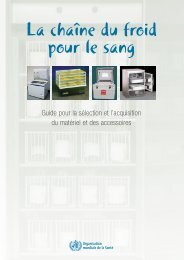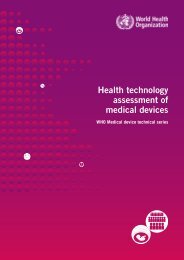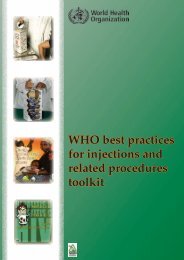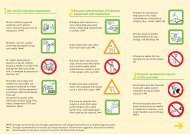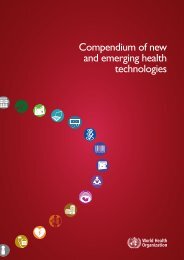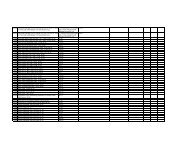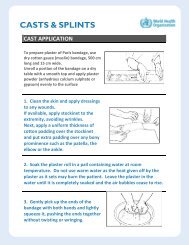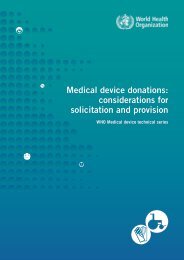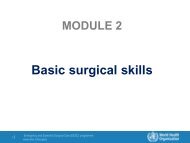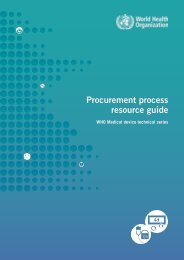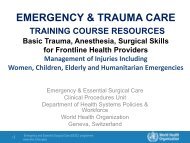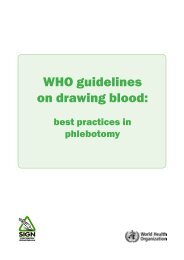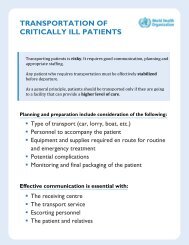SIGN meeting report 2003. - World Health Organization
SIGN meeting report 2003. - World Health Organization
SIGN meeting report 2003. - World Health Organization
You also want an ePaper? Increase the reach of your titles
YUMPU automatically turns print PDFs into web optimized ePapers that Google loves.
Executive Summary<br />
A number of health care procedures may lead to the transmission of HIV to<br />
patients, health care workers or the community at large. These include<br />
(1) transfusion of infected blood, (2) unsafe injections and (3) other skin-piercing<br />
procedures performed in the absence of universal precautions. Thus, safe health<br />
care services should offer to their users (a) a selection of blood donors, testing of<br />
blood units, appropriate clinical use of blood, and when applicable, viral inactivation<br />
of human material for therapeutic use, (b) safe and appropriate use of injections –<br />
which includes sharps waste management - and (c) procedures conducted<br />
according to universal precautions.<br />
Interventions to prevent these health care-associated infections are available,<br />
effective and highly cost-effective. The transmission of HIV infection in health care<br />
settings can be prevented with only a modest shift in the assignment of resources,<br />
for two reasons. First, blood safety, reduction of injection overuse and injection<br />
safety are not costly interventions. Second, the majority of HIV infections worldwide<br />
are caused by unsafe sexual practices. While the emphasis of HIV prevention<br />
programmes should remain on preventing sexual transmission, efforts to make<br />
health care safer should not be neglected.<br />
HIV prevention and care programmes should participate and spearhead<br />
interventions for safer health care within cross-cutting health care-strengthening<br />
initiatives. This can be achieved through (1) communication and behaviour change,<br />
(2) provision of single use injection devices and infection control supplies and (3)<br />
safe health care waste management. Global alliances of stakeholders, including the<br />
Safe Injection Global Network (<strong>SIGN</strong>) can assist in the creation of national infection<br />
control coalitions. The Global Fund to fight AIDS, Tuberculosis and Malaria as well<br />
as the <strong>World</strong> Bank “Multi-country AIDS Programmes” (MAP) and other funding<br />
partners provide an opportunity for countries to finance and scale up interventions<br />
through the provision of essential equipment and supplies. Through that approach,<br />
everyone will become involved so that the current initiative for “access to care” can<br />
become an initiative for access to safe health care.



